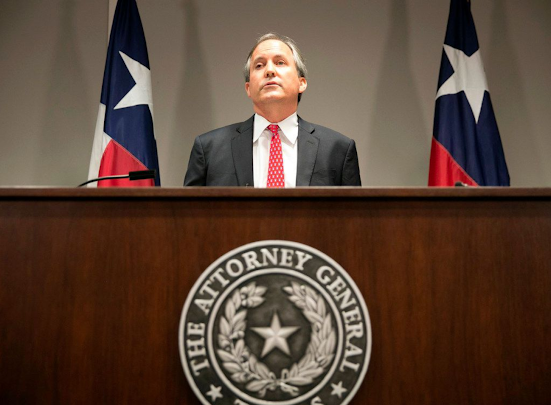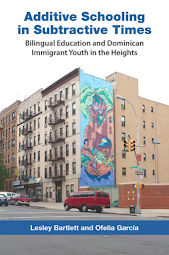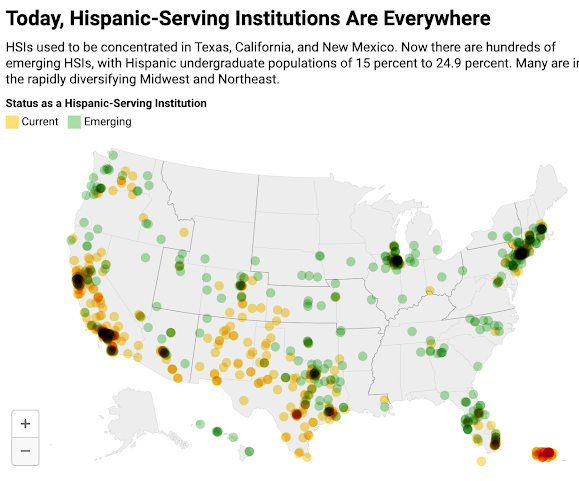This piece shows just how much of a stretch it is for Texas Attorney General Ken Paxton to foster an incorrect and pejorative view of undocumented immigrants crossing our Southern border. Were this not so, he would have included in his analysis the revenue generated by undocumented immigrants' through the sales taxes that they pay.
Against various credible sources of data, Paxton's distorted and politically self-interested conclusion is that undocumented immigrants cost Texans more than they generate in revenue. Do read the entire article on the matter appearing below to derive the opposite conclusion that immigrants' contributions are net positive. As long as I myself have followed this question, the answer has never been otherwise.
We should also always be mindful of the characteristic U.S. Census undercount of undocumented people and Hispanics, generally, that if done well, would bring much-needed federal dollars to our state, as well as stronger political representation which was a direct cost of the last U.S. Census undercount. Accordingly, read Gov. Abbott’s actions cost Texas an extra House seat, by Dudley L. Poston, Jr. & Rogelio Sáenz.
These machinations are nevertheless understandable from the perspective that scapegoating immigrants and stoking anti-Mexican and anti-Latino xenophobic fears in the Republican Party base—to which even a Trump-appointed federal judge didn't completely buy—is preferable to the truth that immigration and immigrants contribute positively to Texas' economy.
-Angela Valenzuela
Does Texas spend more for services to undocumented immigrants than they yield in taxes?
While Texas AG Ken Paxton casts unauthorized immigrants as costly “burden,” experts say they actually generate a net benefit for the state. The last official look – not updated – is 15 years old.
By Robert T. Garrett | Dec 29, 2021 |Dallas Morning News
AUSTIN — As he celebrated an early-round win challenging one of just-inaugurated President Joe Biden’s dozen or more executive orders and policy changes on immigration earlier this year, Texas Attorney General Ken Paxton claimed to have made a big discovery: “Illegal aliens” are costing state taxpayers a bunch of money.
In his federal lawsuit challenging the Biden administration’s initial, 100-day halt to deportations of most noncitizens, “Attorney General Paxton uncovered hundreds of millions of dollars that Texas taxpayers involuntarily spent on illegal aliens every year,” Paxton said in a March 31 news release.
Texans are generous “but the cost of illegal immigration is an unconscionable burden on the taxpayers of our great state,” Paxton said, ticking off six categories of expenses.
Paxton’s depiction of undocumented immigrants as economic deadweights draws fierce disagreement from immigration advocates who brand his analysis artless and one-sided. In court last winter, his numbers were embraced in part – but partly rejected – by a sympathetic federal judge appointed by former President Donald Trump.
The episode highlighted how it’s been 15 years since Texas has made an official attempt to analyze how much undocumented immigrants add and subtract from state and local government finances.
In December 2006, one month after her bid as an independent candidate to unseat then-GOP Gov. Rick Perry fizzled, then-Comptroller Carole Keeton Strayhorn issued a special report, “Undocumented Immigrants in Texas: A Financial Analysis of the Impact to the State Budget and Economy.”
It estimated that deporting all 1.4 million unauthorized immigrants that were believed to live in Texas at the time would shrink gross state product by $17.7 billion or 2.1%. Strayhorn found undocumented immigrants produced for the state significantly more revenue than costs, a net positive of $425 million in fiscal 2005. Local governments, socked with incarceration and health care costs not reimbursed by the state, bore a net negative cost of $929 million in fiscal 2005, her report said.
Strayhorn, who as a Republican won two terms as comptroller and before that, one as state railroad commissioner, noted that her findings of positive fiscal effects at the state level conflicted with what at the time were fresh studies by a national anti-immigration group and a left-of-center Colorado think tank, “both of which identified costs exceeding revenue.”
Republican consultant Mark Sanders, who was Strayhorn’s top political adviser, recounted recently that the self-styled “one tough Grandma” and her aides knew the report would stir controversy.
“For a lot of Republican primary voters, it’s a black and white issue, there is no gray: ‘Illegal immigrants, especially illegal Mexicans, are bad for the country,’” Sanders said.
“That was the general feeling and Carole wanted to get out some numbers that showed a different story, a more accurate portrayal of the economic impact that this particular group of people was having on Texas,” he said. Leaders of communities near the Texas-Mexico border “were insistent that we do the report,” to underscore how a total shut-off of illegal immigration would be “devastating” for the state economy, he recalled.
“Now, it would be too hot a potato for someone to pick up and try to update,” said Sanders, noting that immigration more recently has soared in importance and become Texas Republican voters’ top issue. “It would take a tremendous amount of political courage for someone to do that in this atmosphere.”
Former Comptroller Susan Combs, who served in the tax collecting and revenue estimating post for two terms after Strayhorn, said during her tenure that changes in state and federal laws and other constraints on her office prevented the study from getting an update.
The current comptroller, Glenn Hegar, promised in 2013 that if elected he would update the 2006 study or do “a similar one.” However, Hegar hasn’t done so. Through a spokesman, he recently pointed to the press of other business, and a lack of prodding by the Legislature.
“The agency has not been formally asked to study the economic impacts of illegal immigration,” Hegar spokesman Chris Bryan explained.
Hegar, whose family owns a ranch near Eagle Pass on the border, knows “the recent massive increase in illegal border crossings” has ratcheted up border enforcement costs for border communities as well as the state, Bryan said.
“When the health care burdens associated with caring for migrants testing positive for COVID are factored into the increased law enforcement needs, the costs associated with the federal failures on the southern border are no doubt staggering,” he said.
The Hegar spokesman was referring to how Gov. Greg Abbott and members of the GOP-controlled Legislature, with only a sprinkling of Democratic support from border lawmakers, have more than tripled state spending on border security, to $2.8 billion in the current two-year budget cycle.















